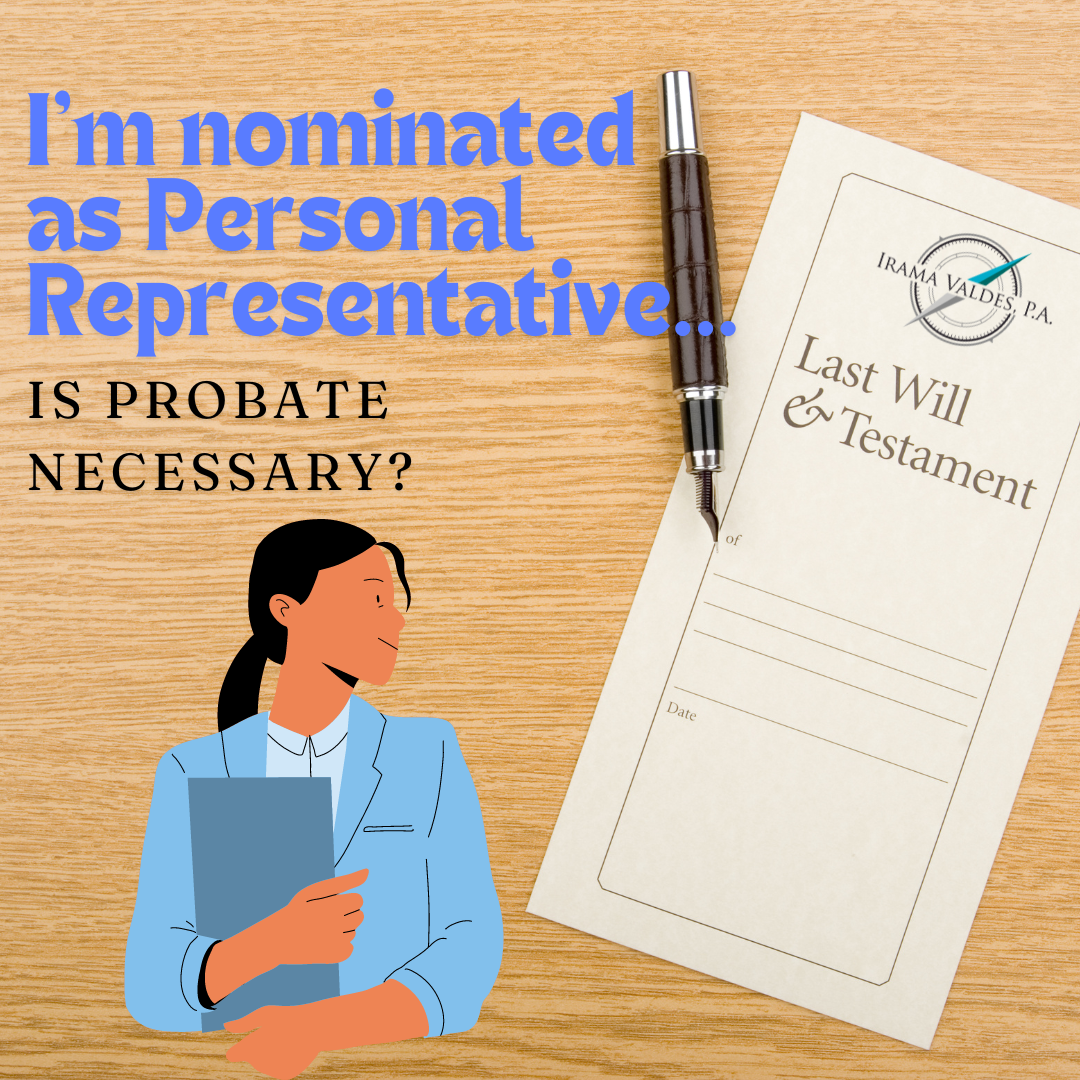Many people come to us and say “But I was designated as Personal Representative in the Will so we don’t need to open a probate case, right?”
Unfortunately, the answer is “No.” Being named as a Personal Representative (also known as an executor or administrator) in a will does not avoid probate.
A Will (or sometimes referred to as Last Will and Testament) is simply a document where an individual states their wishes for their assets and the management of their assets after passing. It tells the Court “This is who I want managing the disposition of my assets after I pass and ‘this’ is who should get my stuff.”
Probate is really the legal process through which a deceased person’s Will is validated (or “admitted to probate”) and their assets are distributed according to the Will. The role of the Personal Representative is to manage this process, which includes tasks such as:
- Filing the will with the probate court: The Personal Representative must submit the will to the appropriate court to begin the probate process.
- Inventorying the estate: They must identify and value all assets and debts of the deceased.
- Notifying creditors and beneficiaries: The Personal Representative must inform all relevant parties of the probate proceedings.
- Paying debts and taxes: They are responsible for settling any outstanding debts and taxes owed by the estate.
- Distributing assets: After debts and taxes are paid, the remaining assets are distributed to the beneficiaries as specified in the will.
In some cases, certain assets can avoid probate if they are held in ways that bypass the process, such as:
- Joint ownership with rights of survivorship: Assets pass directly to the surviving owner.
- Beneficiary designations: Accounts like life insurance policies and retirement accounts that name beneficiaries can pass directly to those beneficiaries.
- Trusts: Assets placed in a living trust can be distributed without going through probate.
However, the existence of a Will alone does not avoid probate; it merely provides instructions for the probate process.
If you want to learn how to avoid probate for your family, give us a call or send an email!
(305) 477-1111 | info@probatelawmiami.com
For more info on how the consultation process works, check out this video: Steps to a Consultation








